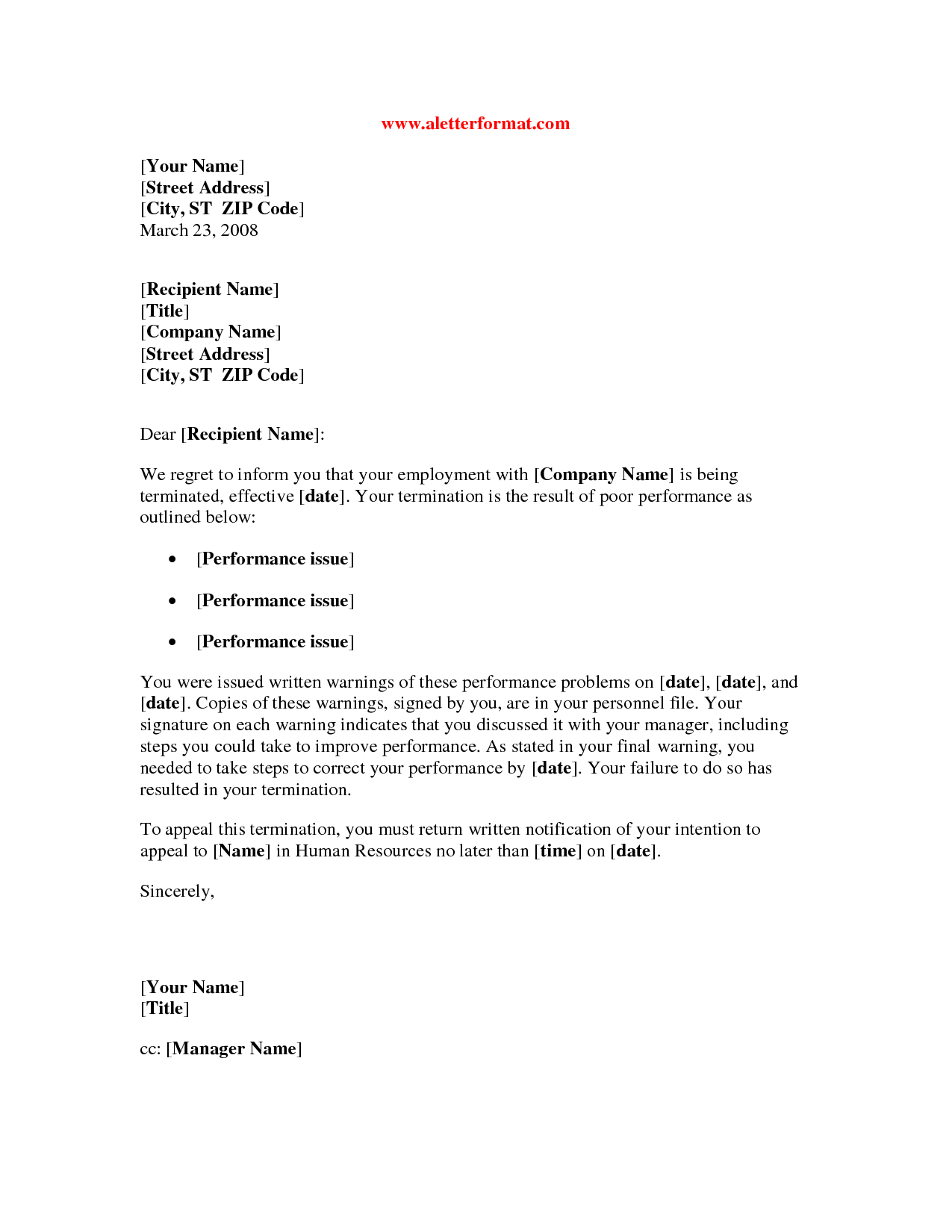Are you struggling with how to effectively communicate a Termination Letter Lack Of Performance to an employee? Look no further! Below, you will find examples of Termination Letter Lack Of Performance that you can use as a template and customize as needed.
Explanation of Termination Letter Lack Of Performance
When an employee consistently fails to meet performance expectations despite receiving feedback, coaching, and support, it may be necessary to terminate their employment. This can be a difficult decision for employers, but it is crucial to maintain a high standard of performance within the organization. A Termination Letter Lack Of Performance is a formal document that outlines the reasons for termination and communicates the decision to the employee in a clear and professional manner.
- Failure to meet performance goals
- Lack of improvement despite feedback
- Inability to fulfill job responsibilities
- Negative impact on team or company performance
Example of Termination Letter Lack Of Performance
Dear [Recipient’s Name],
It is with regret that I must inform you of our decision to terminate your employment with [Company Name], effective immediately. Despite our best efforts to support you in meeting performance expectations, it has become clear that your performance does not meet the standards required for your role.
Over the past [time period], we have consistently discussed areas where improvement was needed and provided you with feedback and resources to help you succeed. However, despite these efforts, there has been little to no improvement in your performance. As a result, your continued employment with [Company Name] is no longer feasible.
Your termination is based on your failure to meet the performance goals outlined in your job description and the negative impact that your performance has had on the team and the company as a whole. We believe that this decision is in the best interest of all parties involved.
We wish you the best in your future endeavors and hope that you will take this opportunity to reflect on your performance and make the necessary improvements in your future roles.
Sincerely,
[Your Name]
Termination Letter Lack Of Performance
Termination Letter for Poor Performance-01 – Best Letter Template

Employee Termination Letter Due To Poor Performance Template in Google

Termination Letter Example Due to Poor Performance | Letter Samples

FREE 9+ Sample Contract Termination Letter Documents in MS Word

Termination Letter Poor Performance | scrumps

Sample Appeal Letter For Termination Of Employment Is Your Worst Enemy
